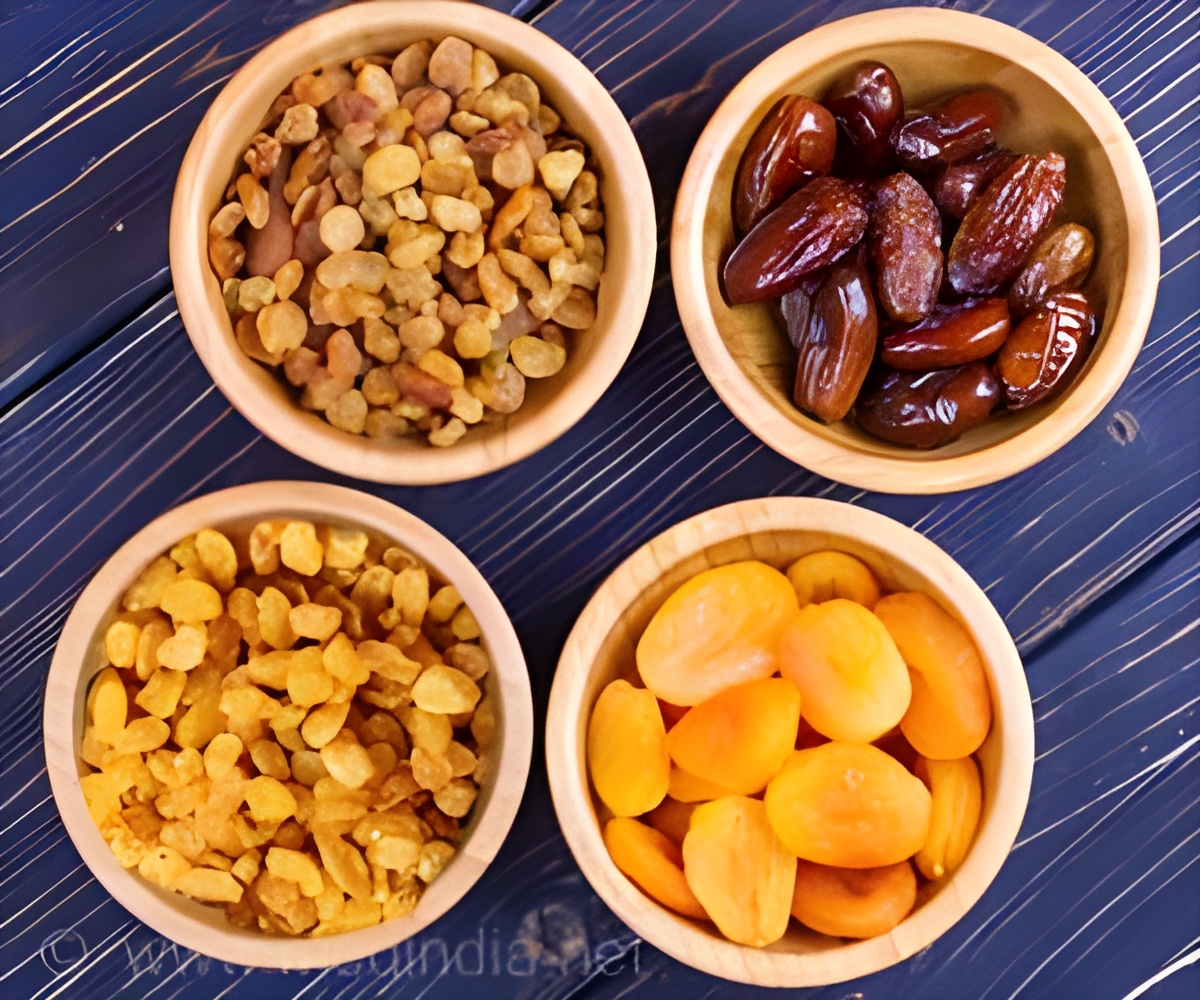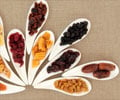Dried fruit may be linked to better health as a new study finds that dried fruit consumption improves general health.

‘Dried fruit consumption may facilitate greater fruit consumption and contribute to better diet quality and nutrient intakes.’





Valerie Sullivan, the postdoctoral researcher at Johns Hopkins Bloomberg School of Public Health and a Penn State grad student at the time of the study, said the findings suggest that dried fruit can be part of a healthy diet -- with some caveats."Dried fruit can be a great choice for a nutritious snack, but consumers might want to be sure they're choosing unsweetened versions without added sugar," Sullivan said. "Portion sizes can also be tricky because a serving of dried fruit is smaller than a serving of fresh since the water has been taken out. But the positive is that dried fruit can help people potentially consume more fruit because it's portable, it's shelf-stable, and can even be cheaper."
Previous research has found that poor diet contributes to nearly half of deaths from cardiovascular disease in the U.S., with a lack of fruit being a major factor. According to the researchers, fruits provide an abundance of nutrients, including fiber, potassium, and several heart-healthy bioactive.
However, despite these benefits, other studies have found that people may not eat enough fruit for a number of reasons -- including limited availability, cost, and the fact that it can spoil quickly, among others. In the current study, the researchers wanted to examine whether dried fruit could be a healthful alternative to fresh fruit since it could be cheaper.
"Minimally processed forms of fruit, including frozen, canned, and dried, have some advantages over fresh fruits," said Kristina Petersen, an assistant professor of nutritional sciences at Texas Tech University and assistant research professor of nutritional sciences at Penn State at the time this work was done. "They are available year-round, are relatively consistent in quality, and can be stored for far longer than fresh. Many are also less expensive per serving than their fresh counterparts."
Advertisement
After analyzing the data, the researchers found that, on average, people who reported consuming dried fruit in the survey had healthier diets than those who did not. They also tended to have lower body mass index, waist circumference, and systolic blood pressure.
Advertisement
"What I also found interesting was that people tended to eat total fruit on the days they ate dried fruit than on days they didn't," Sullivan said. "On days when dried fruit was not eaten, however, fresh fruit intake was not higher. So dried fruit could be a way to boost overall fruit intake in people that aren't eating the recommended amounts."
Additionally, the researchers found that on days they ate dried fruit, participants consumed more total carbohydrates, dietary fiber, potassium, polyunsaturated fat, and overall total calories.
"In our study, people who consumed dried fruits had a higher calorie intake but a lower BMI and waist circumference, which suggests they were more physically active," said Penny Kris-Etherton, Evan Pugh University Professor of Nutritional Sciences. "So, when incorporating dried fruits, pay attention to calories, and be sure to substitute out calories from low-nutrient foods for dried fruits to get the greatest benefit of eating dried fruits."
Source-Eurekalert















